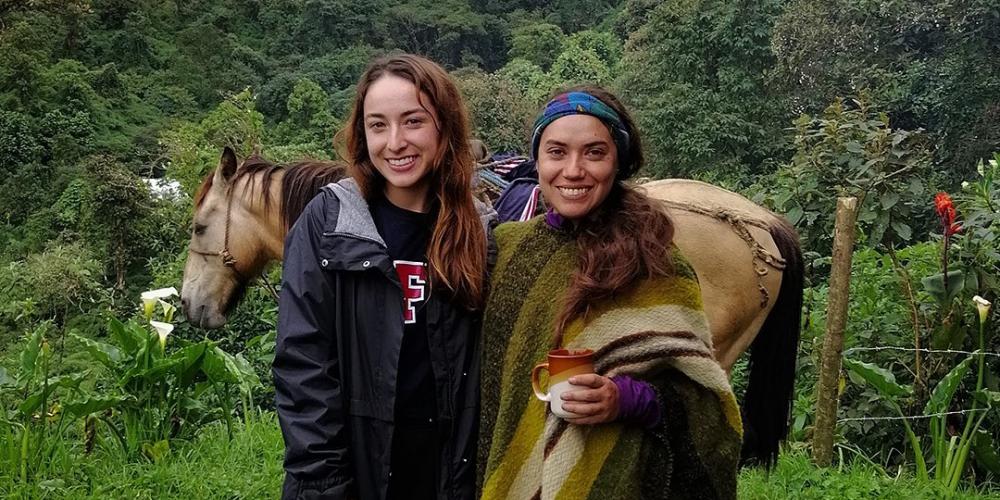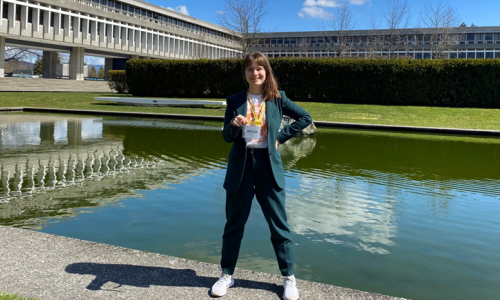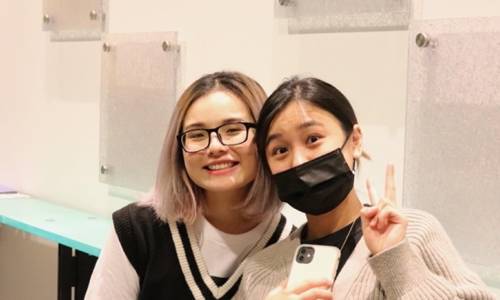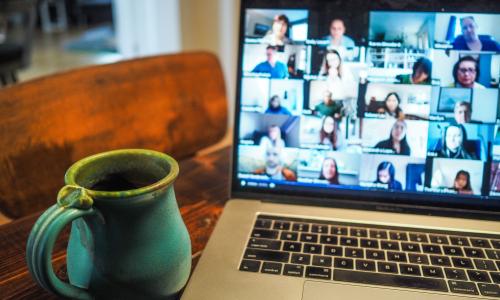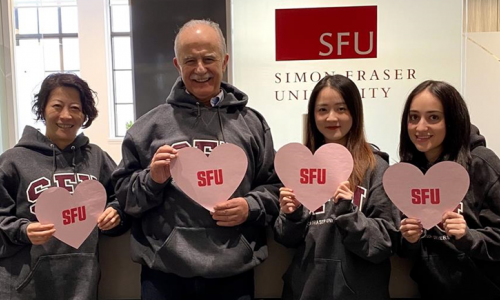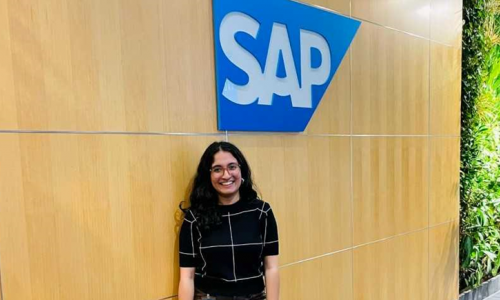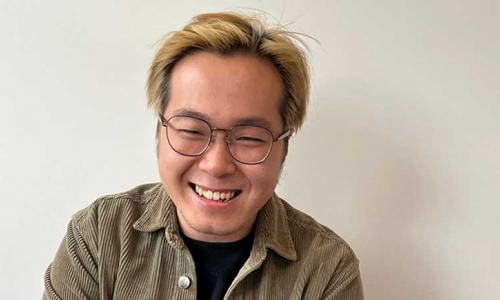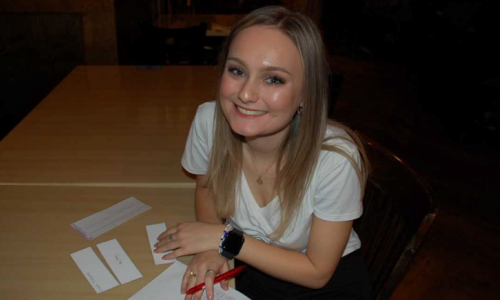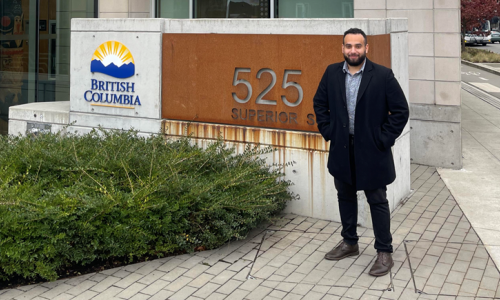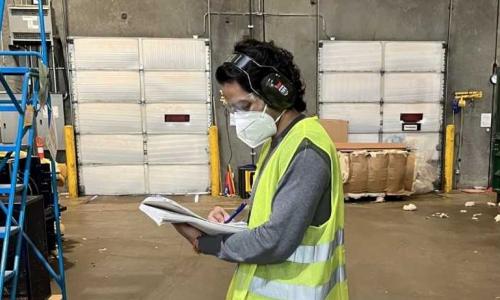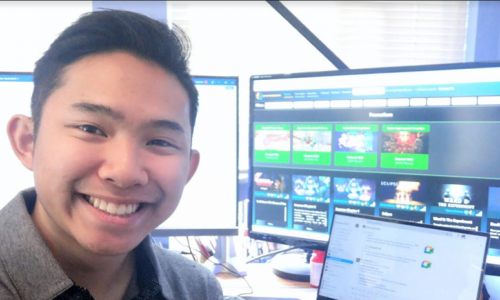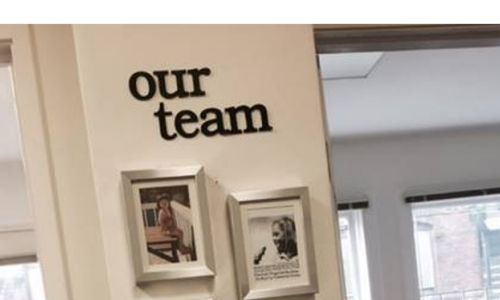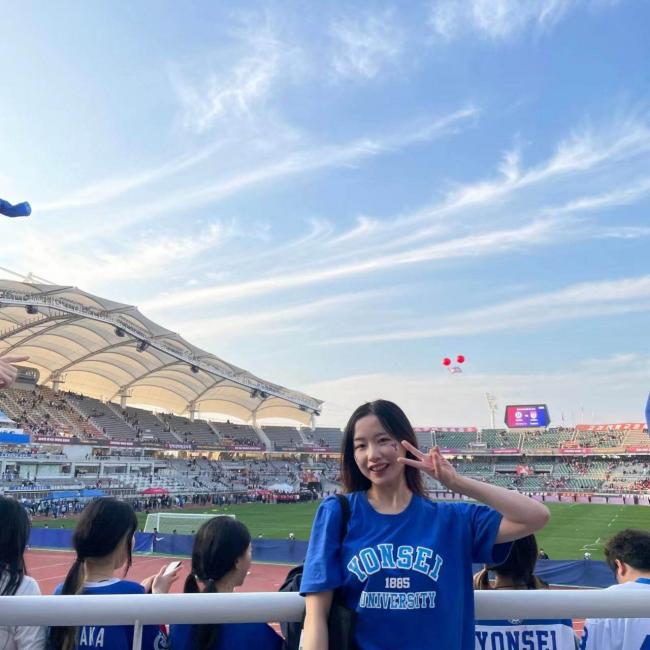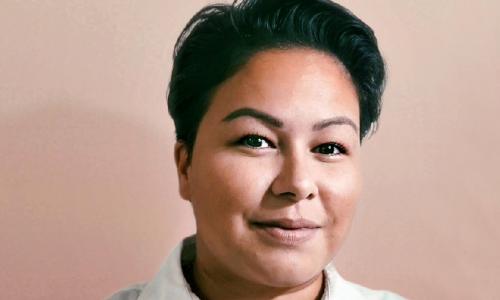Life Experience
The following authors provide an alternative perspective to academic and professional challenges, as they encompass a range of invaluable experiences that contribute to self-growth and understanding. You will see how gaining life experience can happen through travelling, learning about different cultures and ways of life, and overcoming challenges with the self, community, or society as a whole.
Like many Communications students, I came into the School of Communication very interested in media; both studying it and working in it. I found it harder and harder to pinpoint where I could fit into it professionally as I learned more about it. What do you do when you’re interested in media, but not sure you want to work directly in media?
I began working as a part-time Co-op student during the last semester, while also pursuing full-time studies? Yes, you heard that right, part-time Co-op and full-time studies. Was it a challenge for me? Absolutely. Did I feel stressed out? Definitely. Did I manage to succeed by the end of the term? Surprisingly, I did, and it turned out to be my most successful term at SFU, to be honest.
Networking can seem like a daunting task, especially for introverts who prefer quiet and solitude to socializing in large, noisy gatherings. Good news is that there are effective ways for introverts to build meaningful connections without straying too far from their comfort zones.
A few days before the Christmas break of 2021, I received an email that would jumpstart my Co-op journey leading me into new experiences, connections, and so much more! I'm not sure if many people would be able to say this, but wow, am I ever happy that I checked my email that day.
Bzzt! You're staring down at the offer letter you've received from your dream company. Usually, this is where the chapter ends or the curtains fall on a very happy ending. No one prepares you for what comes next and if you're anything like me (an international student), you're even further removed from any immediate sage advice from your loved ones. Worry not! As someone who steered her own ship amidst stormy seas, I'm here to offer some do’s and don'ts that might just save you.
When promoting events and news on social media on behalf of a club, service, or business, the main goal is to get as many eyes as possible on the content. One of my tasks in my 8-month Co-op position was to post updates on their social media accounts, which includes job postings, upcoming events, and special announcements. Over these months, I was able to find useful strategies and tools to help me manage these profiles effectively and efficiently.
Did I exaggerate my capabilities? Will they think I’m a disappointing hire? These were some of the questions that plagued my mind when I first stepped into the office. The fears worsened as I started to learn about my expected workflow, and I wondered if I was out of my depth.
This article is my take on why somebody would pursue a career in sales. I have never done sales in my life, and I like to take on new challenges. Therefore, it allows me to elaborate on the skills I have learned throughout my journey.
Meet John Owusu, an SFU Master of Economics Co-op student. In this quick Q&A, John shares a bit about his co-op experience. Keep on reading as John shares how his mindset helped him at his position, what his schedule was like and how he overcame feeling nervous at the workplace.
Working in a full-time position in an office involves a lot of online communication and file management, thus staying organized is the key to success. In my job specifically, my main tasks were replying to emails and messages on social media as well as posting on the platforms, creating a monthly newsletter, designing promotional graphics, and updating webpages. But no matter the occupation, whether you’re a worker or a student, these tips may help you stay organized and be effective.
Knowing what I wanted to specialize in allowed me to start making plans for my first Co-op term. In all honesty, getting your first Co-op term can be exciting and intimidating. However, with a little planning and effort, you can position yourself for success.
Meet Anik Ahmed, an SFU Master of Political Science Co-op student. In this quick Q&A, Anik shares a bit about his co-op experience. Keep on reading as Anik shares his co-op's workplace culture, his employer and how he got the unique experience of travelling to Victoria.
Public Speaking is challenging, and I applaud anyone who can speak in front of a crowd because it takes a lot of courage. These tips will help when speaking to audiences to sell yourself as a speaker and increase your comfort level and confidence.
Meet George Gayed, a Political Science student minoring in international studies with a concentration of international security and conflict. In this quick Q&A, George discusses his work in his different positions, goes over highlights and the most valuable things he has learned.
In the sentences that follow, you will learn five very, very important tips that, if heeded, will prepare you for a career in technical writing. If these tips don’t quite have the effect I’m suggesting, it’s not my fault–you probably did something wrong.
Meet Ditij Beladiya, a student completing an Honours undergraduate degree with a Major in Economics, Concentration in Economic Data Analytics and Minor in Political Science. In this quick Q&A, Ditij shares about his co-op experience. Read about his interview, his day to day tasks and what he has learned.
Many times, our co-op students graduate from our program, and use these experiences in future positions. Today, we will be interviewing a former student of ours, Fatima Sajid to see where she is now after graduation. Read about how her onboarding processes went, the skills she learnt and how her employers helped her develop said skills.
I’ve learned to expect the unexpected in the field of communications, but this semester, that was taken to the next level, as event planning became the focus. While most days were fairly regular office hours, I did once spend the weekend as a guide and mic runner for a research summit. Another time, I got to attend a free class in voguing!
I will be going over my transformation from a bumbling Co-op student to a full-fledged Marketing Coordinator and give tips on how you too can navigate through your first work term.
I made such great progress throughout the years that Little Nadya would definitely be in awe (and in worry because she’ll need to go through all those interviews). So, how did I do it? It wasn’t easy or comfortable, but that’s how you progress. Here are my tips for overcoming, or at least coping, with extreme interview anxiety.
Meet Amy S. FitzGerald, the Executive Director at BC Society of Transition Houses (BCSTH). In this quick Q&A, Amy discusses how co-op students adapted to the position, resources the organization provided and tips for future employers and students.
Meet Graham Stuart, the Director of Corporate Planning at the City of Coquitlam. In this quick Q&A, Graham discusses the process of hiring an intern, the rewards and tips for employers hoping to hire a student.
There is a certain level of confidence you surround yourself with when going into your second work term. Suddenly, you’re not junior anymore and you have some legitimate experience on your belt. That experience can be used as almost a protective shield when going back into the workforce, especially when there’s a new element introduced. It’s no longer remote.
This was it. I finished writing my resumes, successfully passed the interview process, and accepted the job offer with cheers of joy. I told my mother with a large grin on my face, but in the midst of my excitement, my smile slightly lowered, and a wave of nervousness washed over me.
As an undergraduate student who decided to switch my degree from Psychology to Communication on a whim, I was very nervous about my future career path, especially since I felt like I was the only person that had no big dreams in life. Therefore, I decided to apply to Co-op to start piecing together my goals and ambitions.
I came into it wanting to learn as much as I could. Somehow, I learned more than I thought I would, including about the changeable nature of start-ups. I’ll always be grateful for the flexible work environment that allowed me to gain experience in things I never dreamed of doing.
As a single mom, providing her young daughter with a bright future motivated Sarah Rain to work towards her degree, while also navigating the challenges of work, life, and parenthood.








